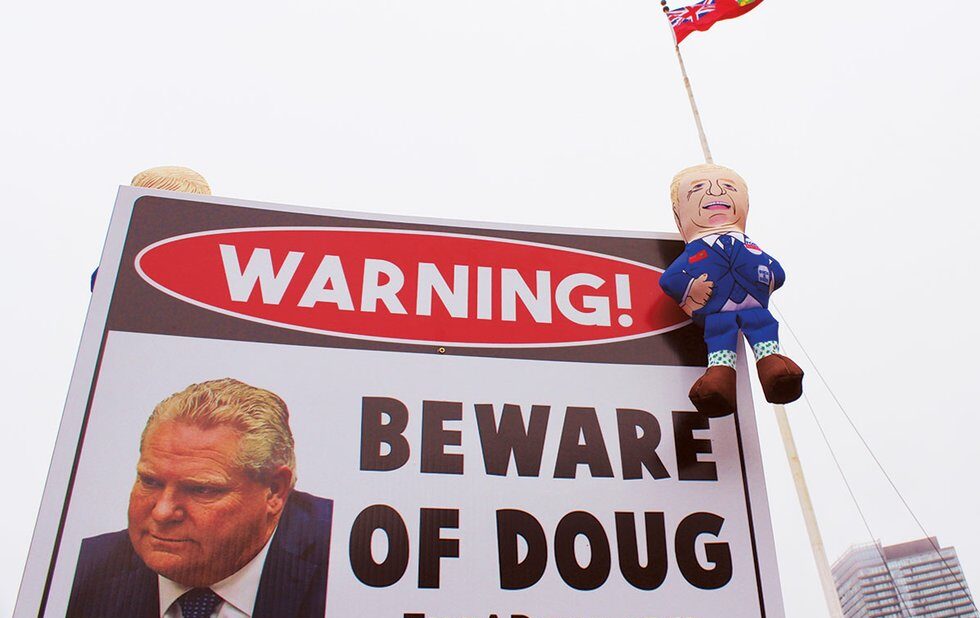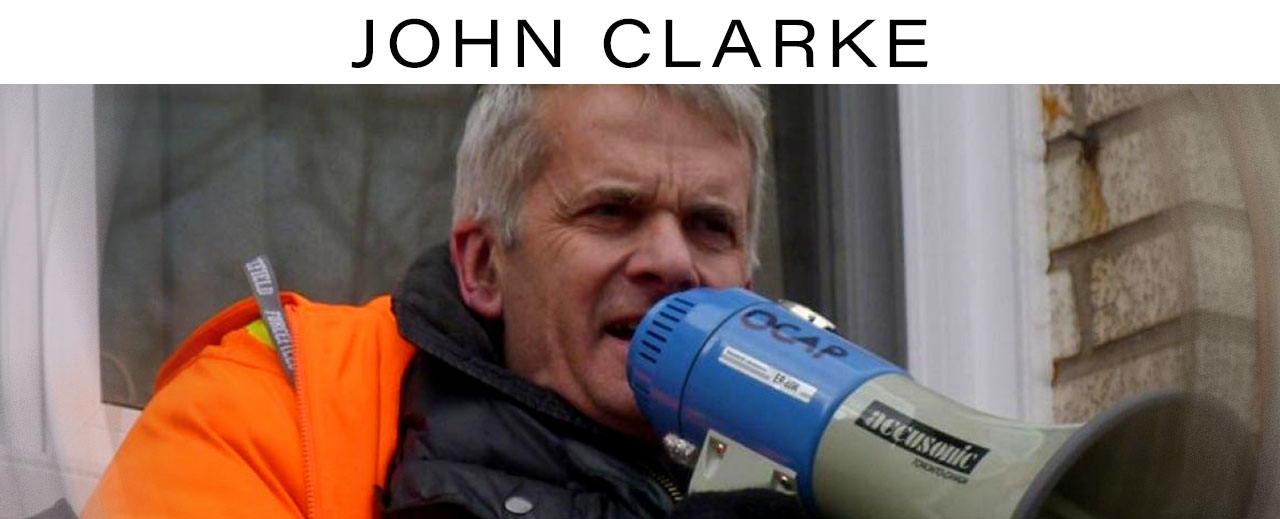
In 1919, with a major strike looming that would threaten his government, British Prime Minister David Lloyd George held a meeting with the leaders of the unions involved. Knowing these officials would view a decisive confrontation with the state with the utmost dread, he was able to play them like fiddles. The conversation he had with them was later recounted by one of the union leaders, Robert Smillie. The Prime Minister told them
'Gentlemen, you have fashioned in the Triple Alliance of the unions represented by you, a most powerful instrument. I feel bound to tell you that in our opinion we are at your mercy. The Army is disaffected and cannot be relied upon. Trouble has already occurred In a number of camps. We have just emerged from a great war and the people are eager for the reward of their struggle, and we are in no position to satisfy them. In these circumstances, If you carry out your threat and strike, then you will defeat us.
'But If you do so, have you weighed the consequences? The strike will be in defiance of the government of the country and by its very success will precipitate a constitutional crisis of the first importance. For if a force arises in the state which is stronger than the state itself then it must be ready to take on the functions of the state or withdraw and accept the authority of the state.
'Gentlemen, have you considered, and if you have, are you ready?
'From that moment on’ said Robert Smillie, 'we were beaten and we knew we were.’’
Lloyd George, known as the ‘Welsh Wizard,’ was a formidable political agent of the ruling class, with considerable analytical powers and the capacity for nimble tactics. Let me make a jarring comparison. In April of last year, then US president, Donald Trump, held a press conference on his administration’s responses to the spread of the pandemic. He offered his impromptu thoughts on possible remedies for those infected with COVID-19 and one of these was to inject people with disinfectant.
"And then I see the disinfectant where it knocks it out in a minute. One minute. And is there a way we can do something like that, by injection inside or almost a cleaning? So it'd be interesting to check that. I'm not a doctor. But I'm, like, a person that has a good you-know-what."
If Trump could have replaced Lloyd George in the meeting with the leaders of the Triple Alliance, the course of British history might have been entirely different. Though Trump is an extreme example to draw on, I really do feel that recent decades have seen a remarkable decline in the competence and standing of political leaders. At least, that is the case when you look at the English speaking G7 countries. That the task of ending Trump’s erratic antics in the White House had to be entrusted to so uninspiring a figure as Joe Biden is really quite telling. The self-absorbed buffoonery of Boris Johnson compares badly with Thatcher’s iron resolve and considerable talents. Pierre Trudeau cast a shadow over Canadian political life, whereas his son is a pathetic wretch, as shallow politically as he is morally.
Of course, it is quite true that mediocrity is not a new phenomenon. There have always been political leaders who seemed to be there to read their lines and front operations they had no major role in defining. However, I do feel that any half serious scrutiny of the present range of politicians leads to the conclusion that the pool of talent is closer to drying up that it has ever been. Whatever the explanation for this is, it can’t be that everything is so calm and stable that talent in government is no longer important. Since 2007, global capitalism has passed through a huge financial crisis and the Great Recession. This was followed by the most sluggish economic recovery imaginable, with renewed downturn kept at bay with great difficulty. We now have a global pandemic, a huge economic crisis and the way ahead looks enormously uncertain. The Western powers deal with the declining power of their US lynchpin and global rivalry with the ascending might of China. It doesn’t seem to be a time to settle for weak leaders. So, why are such lacklustre figures at the helm of the ship of state?
The B Team
Clearly, one of the factors at work, is the emergence of right wing populist trends. The drift of the political base of mainstream conservative parties off into uncharted right wing territory has made it possible for wealthy, brash, politically inexperienced and intellectually limited figures to move into positions of power. To the consternation of political establishments and state bureaucracies, the crude and erratic antics of people like Trump or Doug Ford in Ontario now have to be contained and survived. Imagine being a member of the Tory Old Guard or a senior ministry bureaucrat listening in horror as Ford seriously suggested that any Greenbelt land around Toronto that was turned over the developers would be ‘replaced.’ They simply must wonder how it could possibly have come to this.
However, the emergence of the cloddish lumpen bourgeoisie as holder of high office is only one part the reason why capitalist states seem to be in the hands of a political B team. In the 90s, when the Ontario Tory government of Mike Harris was implementing a drastic round of social cutbacks, I recall a discussion on CBC Radio that featured a group of senior university administrators. They had assembled to express their outrage at a comment Harris had made on a visit to an academic setting. He had found that this institution was offering a course in the development in the Latin language and mocked this. He went on to suggest that universities had to put a stop the all this ivory tower irrelevance and start turning out the job ready products employers needed. These patrician academics couldn’t have been more horrified and they indignantly explained that a university is not a trade school and that a complex society needed a wide base of knowledge and understanding in its emerging intelligentsia.
I feel that story offers a clue to the problem we are exploring. Harris was a much more serious political figure than the buffoonish Ford but, in his time, he was the barbarian at the gates. The federal Tory Party had had a near death experience, with its massive electoral defeat in 1993. The party survived by merging with an earlier form of right wing populism and bringing into its ranks a hard right element from the Reform Party. The marks of that merger were certainly on the Harris regime in Ontario. His legislative caucus was a clear expression of a new approach and a changing political agenda around which a consensus was emerging.
The neoliberal agenda first emerged in the 1970s, as an effort to restore falling rates of profit within capitalist economies. The concessions to unions and the improvements to the social infrastructure that had marked the post war period, were no longer sustainable. Governments passed from a practice of brokering limited concessions to being agents of naked class war and austerity. Industrial bases were dismantled, jobs moved offshore and whole towns and cities put through a process of ‘managed decline.’ I’m not trying to spin any fantasy of a golden age before neoliberalism but sharp changes did occur in how governments operated. Marx and Engels famously observed in the Communist Manifesto that, ‘The executive of the modern state is but a committee for managing the common affairs of the whole bourgeoisie’ but that can’t be interpreted too crudely. Governments do weigh political decisions and, while they fundamentally serve the interests of the ruling classes, they may find themselves at odds with some capitalist interests. Class rule is real enough but it is an inexact operation. However, precisely because it is so ruthless, relentless and globally enforced, the neoliberal era has rather reduced the role of governments to limiting or accelerating the speed with which its regressive agenda is implemented.
Before the neoliberal period, governments had far more ability to credibly pose as brokers of the common good and I suspect the changed role for today’s political leaders has had an impact on those who gravitate to such a function. In the present context, the right wing of the political establishment enthusiastically implements a regressive agenda that is really not that complicated. You cut lots of programmes, hire more cops, open prisons and deny climate change. It's a job for simple souls who like lots of perks. Those with progressive credentials have so much less to work with than they used to. If you were on the left of a city council in the 60s, you’d be pressing for expanded social housing. Today, you try to get the developers to add a few more units of ‘affordable’ housing that no poor person can actually afford to their latest luxury tower.
Though I have no wish to praise him, the present mayor of Toronto, John Tory, strikes me as someone who would have been in his element as a politician before the neoliberal era. Even in the context of austerity and the extreme commodification of housing, he doggedly plays the role of compassionate conservative and, though he hasn’t got that much to work with, tries to play the role of consensus builder. At an earlier time of relative class compromise, he’d have been in his element. Doug Ford, on the other hand, would have been laughed out of the room, if he’d run for leadership of the Tory Party in those days.
Come Back Lloyd George
While global capitalism is not without its serious challenges, and the class struggle has not been eliminated, it is also true that the capacity for sustained social resistance has been weakened during the neoliberal period. The trade unions are not what they were. Strikes are far less frequent than they used to be. The low wage, precarious workforce has a greatly reduced ability to organize and challenge employers. The wily and intelligent David Lloyd George was plying his trade as a revolutionary wave passed through Europe and a militant working class movement challenged British capitalism.
The pandemic triggered period of crisis we have now entered will drive masses of people into struggle against the capitalist system. We may hope and expect that increased levels of resistance will lead to new and more dynamic forms of working class organization. It’s hard to imagine the capitalist classes relying on second rate political players in such a situation. I don’t know where the evil geniuses they will call upon are at the moment. They may be hedge fund managers, corporate lawyers or right wing academics but they are somewhere. Capitalism in crisis and under threat can do better than Doug Ford and Justin Trudeau.
